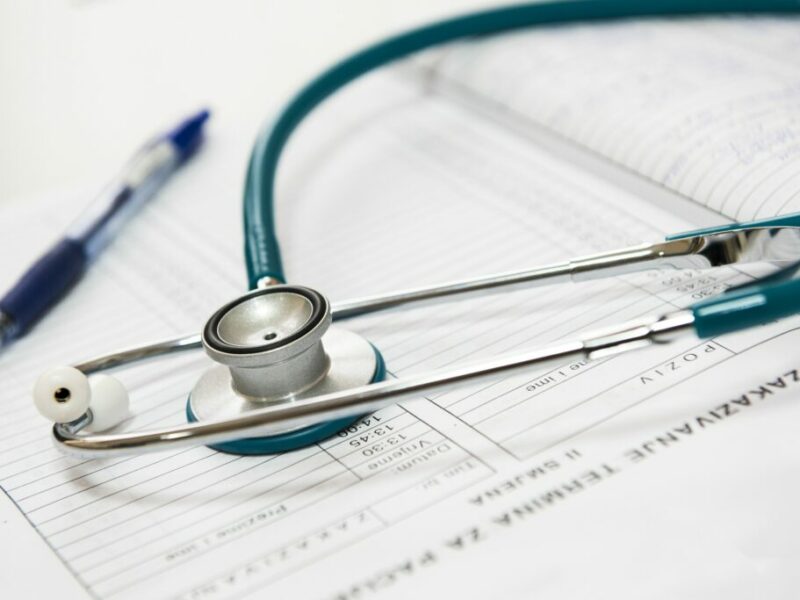Medical Terms in Spanish
I remember going on a trip abroad when I was younger. The moment I arrived at the airport, I immediately came down with a nasty illness. Getting sick is obviously no joy ride regardless of the place and time. However, being sick when on a trip is extra scary.
That’s why medical terminology is a great place to start when learning a new language. In this article, we will be looking at some common medical words and terms in Spanish. Fingers-crossed you won’t be needing any of these. But if you do ever encounter a health emergency when travelling in a Spanish speaking country, I hope this Spanish medical vocabulary list will be able to help.
Medical Terms in Spanish
Enfermos – Sick
“Estoy enfermo.” – “I am sick.”
El hospital – The hospital
“¿Dónde está el hospital?” – “Where is the hospital?”
Médico – Doctor
“Necesito ver un médico.” – “I need to see a doctor.”
Una ambulancia – An ambulane
“¡Llame a una ambulancia!” – “Call an ambulance.”
La inyección – Injection
“No quiero ponerme una inyección” – “I don’t want to get an injection.”
La cirugía – Surgery
“La cirugía fue exitosa.” – “The surgery was successful.”
El medicamento – Medicine
“El medicamento no fue efectivo porque todavía estoy enfermo.” – “The medicine was not effective as I’m still sick.”
El antibiótico – Antibiotic
“Tome el antibiótico cada ocho horas.” – “Take the antibiotic every eight hours.”
La pastilla – Pill
“La pastilla es roja y blanca.” – “The pill is red and white.”
Los primeros auxilios – First aid
“Un salvavidas necesita saber cómo hacer primeros auxilios.” – “A lifeguard needs to know how to do first aid.”
La vendaje – A bandage
“El vendaje se desprendió cuando estaba nadando.” – “The bandage came off when I was swimming.”
La receta – Prescription
“El doctor le dio una receta a Marcos.” – “The doctor gave Marcos a prescription.”
El diagnóstico – Diagnosis
“El diagnóstico no es concluyente.” – “The diagnosis is inconclusive.”
El tratamiento – Treatment
“El tratamiento del cáncer es muy caro en algunos países.” – “Cancer treatment is very expensive in some countries.”
La diabetes – Diabetes
“A mi primo le diagnosticaron diabetes.” – “My cousin was diagnosed with diabetes.”
La alergia – Allergy
“Selena es alérgica a los mariscos.” – “Selena is allergic to shellfish.”
La gripe – Flu
“¿Ya se vacunó contra la gripe?” – “Did you get your flu shot yet?”
Resfriado – Cold
“Tengo un resfriado, así que no puedo ir a clase hoy.” – “I have a cold, so I can’t go to class today.”
La fractura – Fracture
“Esta fractura sanará en unos 3 meses.” – “This fracture will heal in about 3 months.”
La herida – Injury
“Las heridas son parte del deportes.” – “Injuries are part of sports.”
La fiebre – Fever
“Julio tuvo una fiebre muy fuerte ayer.” – “Julio had a very bad fever yesterday.”
La nariz tapada – Stuffy nose
“Mi amigo suele tener la nariz tapada cuando llega el invierno.” – “My friend usually has a stuffy nose when winter comes.”
Dificultad para respirar – Shortness of breath
“La dificultad para respirar es un síntoma de Covid 19.” – “Shortness of breath is a symptom of Covid 19.”
Tos – Cough
“Cuando tiene tos, no debe comer papas fritas.” – “When you have a cough, you shouldn’t eat french fries.”
El mareo – Dizziness
“¿Cómo me deshago de este mareo?” – “How do I get rid of this dizziness?”
El vómito – Vomit
“Hay vómito en el suelo.” – “There is vomit on the floor.”
El dolor – Pain
“¡El dolor es demasiado para soportarlo!” – “The pain is too much to bear!”
La migraña – Migraine
“Empecé a tener migrañas desde anoche.” – “I started having migraines since last night.”
El calambre – Cramp
“¡Ayúdame, por favor, tengo un calambre!” – “Please help me, I have a cramp!”

